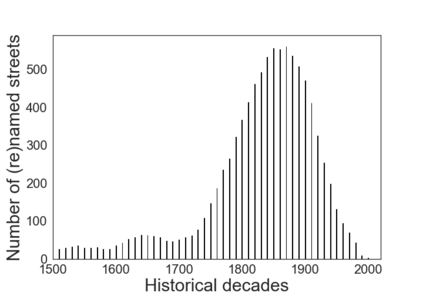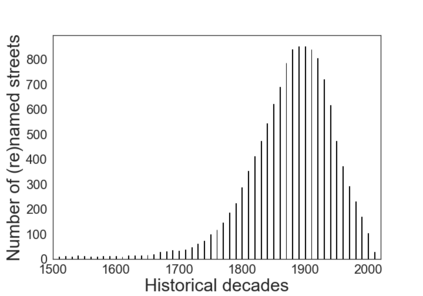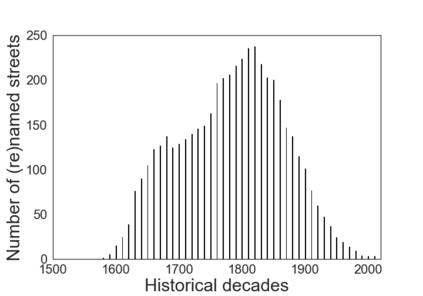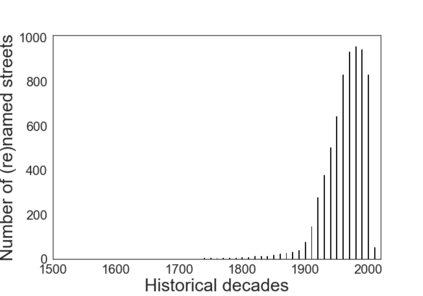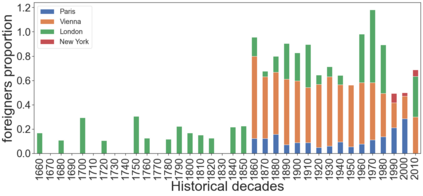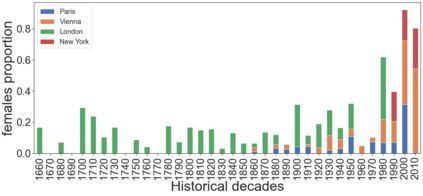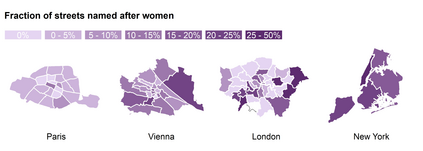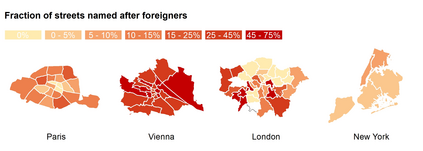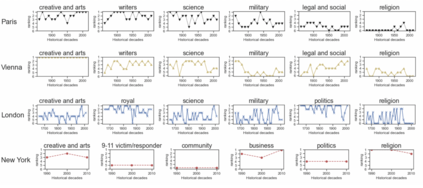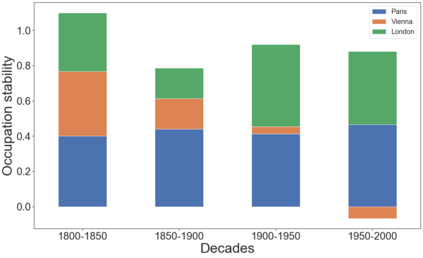Quantifying a society's value system is important because it suggests what people deeply care about -- it reflects who they actually are and, more importantly, who they will like to be. This cultural quantification has been typically done by studying literary production. However, a society's value system might well be implicitly quantified based on the decisions that people took in the past and that were mediated by what they care about. It turns out that one class of these decisions is visible in ordinary settings: it is visible in street names. We studied the names of 4,932 honorific streets in the cities of Paris, Vienna, London and New York. We chose these four cities because they were important centers of cultural influence for the Western world in the 20th century. We found that street names greatly reflect the extent to which a society is gender biased, which professions are considered elite ones, and the extent to which a city is influenced by the rest of the world. This way of quantifying a society's value system promises to inform new methodologies in Digital Humanities; makes it possible for municipalities to reflect on their past to inform their future; and informs the design of everyday's educational tools that promote historical awareness in a playful way.
翻译:量化一个社会的价值体系很重要, 因为它能说明人们深为关心的是什么 -- 它能反映他们实际上是谁,更重要的是,他们愿意成为谁。 这种文化量化通常通过研究文学作品来完成。 但是,一个社会的价值体系很可能根据人们过去作出的决定和他们关心的事物所调解的决定而暗含地量化。 事实证明,这些决定中有一类是在普通环境中可见的: 它在街道名称中可见。 我们研究了巴黎、维也纳、伦敦和纽约城市4 932个荣誉街道的名称。 我们选择这四个城市是因为它们是20世纪西方世界重要的文化影响中心。 我们发现,街道名称在很大程度上反映了社会存在性别偏见的程度,这些职业被视为精英,以及城市受世界其他地方影响的程度。 以这种方式量化社会的价值体系承诺在数字人类学中提供新的方法信息; 使得各城市能够反思其过去,以便了解其未来; 并告知如何设计日常教育工具,以增进历史意识,从而在游戏中提高历史意识。





